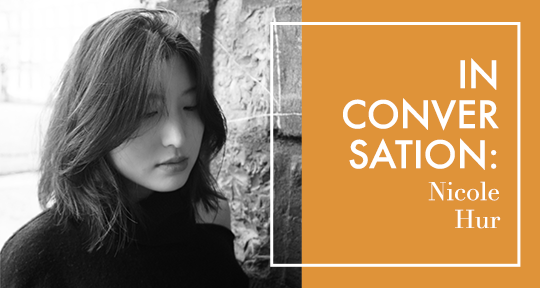The Hanok Review is a rising journal of Korean literature, publishing Korean-to-English translations, interviews, and original creative writing by authors identifying with Korean culture. At the intersection of contemporary, global letters and the Korean diaspora, the Hanok Review cultivates its unique voice by managing each translation internally, curating Korean-language poetry submissions that speak to a multilingual world of pan-Korean identity, with each editor contributing to the journal’s harmonious chorus of translations. In this interview, I spoke to the founder and editor-in-chief, Nicole Hur, about the philosophy of translation and Korean literature, as the Hanok Review launches their second issue.
Michelle Chan Schmidt (MCS): Nicole, in addition to founding and editing the Hanok Review, you also wear the hats of poet and translator. I’d love to hear your opinion on a wonderful essay by Nicole Wong published in our Summer 2023 issue, “The Terroir of a Single Work: Redefining Scope in Approaches to Translation.” It dissects the techniques of translation with metaphorical heft and eloquent clarity and asks the same question you do: “What is home?” How do you understand Wong’s words on foreignization and domestication in relation to the Hanok Review’s translations?
Nicole Hur (NH): Perhaps because I was a poet before a translator, I naturally came to the process of translation with the textual cues and self-awareness enabled by poetic depth. I see this in what Wong articulates as “foreignization with an appropriate scope,” in which the receptor language takes on a “foreign” or non-standard form in an effort to resemble the particular authorial manipulation of the source language; that is, translation as an act of transferring the various stylistic elements in which an author articulates their world from the bounds of one language to another. I believe this intimate approach to translation yields a natural sensitivity to—or at least awareness of—the source text’s socio-cultural context. This sensitivity enables resisting unfounded projections of foreignization or domestication.
Translation can never be perfect, in the sense that the Korean “eomma” can never fully equate to the English “mother,” even in its literal glory. I often think back to Ocean Vuong’s quotation: “even if I were to write the word ‘the’… that is still an Asian-American ‘the.’ I can’t escape it, so if I can’t escape it, I should tend to my curiosities beyond the identity. Because the identity is already there, it’s embedded into everything.”
I want to emphasize the notion of traversing “beyond the identity.” As Wong asserts that the “translator is not a transparent vessel for the foreign author,” I consider a solely ethical aim in translation (at least in regard to foreignization and domestication) to be unattainable, and one that mistakenly assumes a culturally void image of the translator. Translation can never fully be ethical, nor should it aim to be, so how, then, can we reconcile these innate cultural differences—the difference between a Korean “the” and an English “the”? I propose the medium of poeticism. Through careful and deliberate poetic choices, translators have the opportunity to reimbue texts with their socio-cultural nuances beyond the inextricable murkiness of cultural identities and into the workable scope of literary identity—which is in itself a kind of cultural identity. READ MORE…

